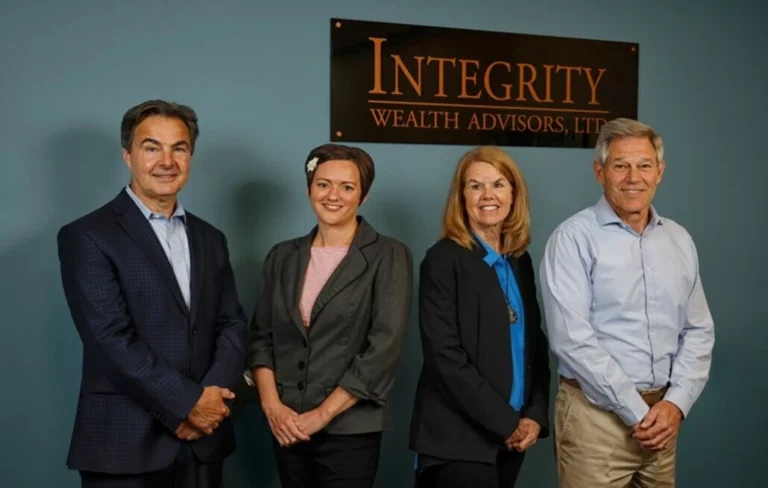Digital Asset Consultancy: Guiding the Future of Smart Investment

Introduction to Digital Asset Consultancy
The world of finance is undergoing a profound transformation. As traditional investment models blend with decentralized technologies, a new domain is emerging to help individuals, institutions, and corporations navigate this shift: Digital Asset Consultancy.
Digital Asset Consultancy refers to professional advisory services that guide clients in acquiring, managing, securing, and optimizing digital financial assets. These include cryptocurrencies, security tokens, NFTs (non-fungible tokens), tokenized real estate, decentralized finance (DeFi) instruments, and blockchain-based portfolios.
In an era where volatility, innovation, and complexity intersect, the need for trusted, strategic, and technically sound consultancy has never been greater. Digital Asset Consultants are becoming indispensable navigators in this fast-evolving landscape — offering knowledge, compliance assurance, strategic allocation, and future readiness.
What Are Digital Assets?
Digital assets are electronic representations of value or ownership that are stored on distributed ledgers or blockchain networks. Unlike traditional physical or centralized financial instruments, digital assets are:
-
Decentralized: Operate on peer-to-peer networks without central authorities
-
Immutable: Transactions are irreversible and recorded transparently
-
Tokenized: Represent ownership rights in a digital or real-world asset
-
Programmable: Can execute logic through smart contracts
Examples of digital assets include:
-
Cryptocurrencies: Bitcoin, Ethereum, Solana
-
Security Tokens: Tokenized shares or bonds
-
Utility Tokens: Used within a blockchain application (e.g., Binance Coin)
-
Stablecoins: Pegged to fiat currency (e.g., USDC, USDT)
-
NFTs: Unique digital collectibles or property rights
-
Tokenized Real Estate & Commodities
These assets, while promising, come with technical complexity, legal uncertainty, tax implications, and cybersecurity risks. That’s where Digital Asset Consultants step in.
Role and Responsibilities of a Digital Asset Consultant
A Digital Asset Consultant serves as a bridge between clients and the digital finance universe. Their core objective is to maximize value and minimize risk across a wide range of blockchain-enabled assets.
Strategic Advisory
Consultants provide tailored advice based on client goals — whether that’s long-term investment, short-term trading, asset protection, or crypto treasury management. They help:
-
Diversify portfolios
-
Choose the right platforms and wallets
-
Identify high-potential tokens and assets
Risk Assessment and Compliance
Navigating the digital finance world requires a keen understanding of:
-
Jurisdictional regulations
-
KYC/AML compliance
-
Tax obligations
-
SEC/FINRA or local authority rules
Consultants ensure that clients operate within legal frameworks and stay compliant.
Security and Custody Planning
Security is paramount. Consultants guide clients on:
-
Cold vs. hot wallets
-
Multi-signature protection
-
Decentralized identity
-
Secure key management
Blockchain Integration for Businesses
For enterprises, consultants enable blockchain adoption for:
-
Supply chain tokenization
-
Digital invoicing and payments
-
Smart contract deployment
-
Digital identity and recordkeeping
They evaluate ROI, technical feasibility, and operational fit.
Education and Training
An important role of a consultant is to educate clients about:
-
How blockchains work
-
Volatility and market cycles
-
Regulatory changes
-
Digital asset trends
The goal is empowered decision-making through financial literacy.
Types of Clients Served by Digital Asset Consultants
Digital Asset Consultancy isn’t limited to individual investors. A diverse range of clients seek this expertise, each with different motivations and needs.
High-Net-Worth Individuals (HNWIs)
These clients often have complex portfolios and are seeking ways to:
-
Diversify out of fiat assets
-
Protect wealth from inflation
-
Explore long-term tokenized investments
-
Secure generational crypto inheritance
Consultants offer wealth structuring, offshore solutions, and estate planning involving digital assets.
Corporations and Startups
Businesses use consultancy services for:
-
Accepting crypto payments
-
Launching tokenized products
-
Implementing blockchain-based supply chains
-
Corporate treasury crypto management
For startups, consultants assist with:
-
Tokenomics design
-
ICO/IDO/IEO strategies
-
Regulatory positioning
-
Investor outreach
Governments and NGOs
Governments are increasingly turning to consultants to:
-
Understand CBDCs (Central Bank Digital Currencies)
-
Develop national crypto regulations
-
Promote financial inclusion via DeFi and blockchain
NGOs consult on using blockchain for:
-
Transparent donations
-
Aid distribution
-
Identity management
Institutional Investors
Banks, hedge funds, pension funds, and family offices hire consultants to:
-
Design compliant digital investment strategies
-
Build exposure to blockchain ETFs or security tokens
-
Transition into digital-native financial infrastructure
The Process of Digital Asset Consulting
Professional digital asset consultancy typically follows a structured multi-phase approach.
Discovery and Goal Assessment
The process begins with an in-depth understanding of the client’s:
-
Financial goals
-
Risk tolerance
-
Legal jurisdiction
-
Current digital literacy
This lays the foundation for tailored strategies.
Digital Asset Mapping and Planning
Consultants identify:
-
Suitable digital assets and platforms
-
Investment timeframes
-
Custody solutions
-
Token allocation plans
They map a digital investment blueprint.
Implementation Support
Consultants assist with:
-
Wallet setups
-
Exchange onboarding
-
Asset acquisition
-
Security system configuration
-
DeFi participation
Monitoring and Rebalancing
Markets shift rapidly. Consultants monitor portfolios to:
-
Mitigate drawdowns
-
Lock in gains
-
Rebalance allocations
-
Respond to regulation changes
Some also offer automated dashboards for real-time tracking.
Compliance and Reporting
End-of-year reporting, tax calculation, and KYC audits are handled professionally to ensure clients stay protected and transparent.
Technology Tools Used in Digital Asset Consultancy
Digital Asset Consultants use a suite of advanced tools for analysis, security, and compliance.
Portfolio Analytics Platforms
Tools like CoinStats, Kubera, and Zapper.fi help track multi-chain holdings, yield farming returns, and staking performance.
Blockchain Explorers
Consultants rely on explorers like Etherscan or Solscan to trace transactions, verify smart contracts, and confirm wallet activity.
Risk Management Dashboards
Platforms like Nansen, Glassnode, and IntoTheBlock provide data-driven insights into:
-
Wallet concentration
-
Whale movements
-
On-chain volume
-
Sentiment indicators
Security Suites
Ledger Enterprise, Fireblocks, and Gnosis Safe help secure assets through multi-layer custody and governance protocols.
Tax and Compliance Tools
Tools like Koinly, TaxBit, and CoinTracker are used to generate tax reports, evaluate capital gains, and ensure regional compliance.
Benefits of Hiring a Digital Asset Consultant
Expertise in a Complex Market
Digital assets involve cryptography, economics, law, and behavioral finance — a highly technical blend. A consultant provides:
-
Simplified understanding
-
Proactive planning
-
Market timing insights
Risk Reduction
Avoid scams, phishing attacks, rug pulls, overexposure, and tax pitfalls through professional guidance.
Customized Strategy
Each client receives personalized, data-backed roadmaps based on goals, geography, and asset appetite.
Time Efficiency
Instead of learning everything yourself, leverage years of domain experience and avoid common mistakes.
Strategic Growth
Move from HODLing to yield farming, staking, NFTs, or real-world tokenized assets with confidence and direction.
Challenges in Digital Asset Consultancy
Regulatory Uncertainty
Rules vary widely across jurisdictions. Consultants must stay up to date with:
-
SEC, FCA, or MAS guidelines
-
Crypto tax codes
-
NFT copyright issues
-
DAO legal status
Volatility and Client Emotions
Consultants must coach clients through:
-
Fear during market crashes
-
Greed during bull runs
-
Patience during sideways markets
Emotional guidance is part of the job.
Technology Complexity
Smart contracts, wallets, yield protocols, and token standards can overwhelm new clients. Consultants need to educate without intimidating.
Custody Risk
Even with good advice, poor storage can lead to loss. Consultants must be extremely cautious in recommending secure solutions.
Future Trends in Digital Asset Consultancy
Rise of AI-Powered Advisors
AI will enhance consultant capabilities by:
-
Predicting market shifts
-
Automating portfolio adjustments
-
Offering 24/7 client chatbots
Growth of Tokenized Real-World Assets
From real estate to stocks to art — consultants will help clients invest in tokenized versions of traditional assets.
Expansion of Regulatory Consultancy
As rules evolve, regulatory expertise will be a major differentiator for consultants, especially in enterprise and institutional markets.
Metaverse Integration
Consultants will increasingly guide clients in purchasing, managing, and monetizing digital land and assets in metaverse platforms like Decentraland and Sandbox.
work globally via Zoom, encrypted messaging apps, and remote dashboards, regardless of client location.
Navigating Tokenization with Digital Asset Consultancy
Tokenization is transforming physical and digital assets into blockchain-based tokens. A seasoned digital asset consultancy can guide businesses in tokenizing real estate, intellectual property, fine art, or even company equity. With this process, assets become more divisible, tradable, and liquid. Consultants ensure compliance with local laws, investor transparency, and secure smart contracts, enabling a smoother transition into decentralized markets.
Tokenization also opens up previously illiquid markets to global investors. For example, a digital asset consultancy might help a museum tokenize a collection of rare manuscripts, allowing fractional ownership across borders. This brings new capital without giving up full ownership.
Digital consultants also assist with choosing the right blockchain platform—whether Ethereum, Solana, or a private ledger—and provide frameworks for valuation, token design, and marketing strategies. Tokenized assets are rapidly becoming a part of wealth portfolios, and digital consultants serve as the bridge between traditional value and blockchain representation.
Regulatory Compliance and Risk Management
Compliance is one of the most critical services a digital asset consultancy offers. As crypto regulations vary by country and shift frequently, staying compliant can be a full-time job. Consultants are well-versed in global financial regulations, KYC/AML laws, securities classifications, and tax implications of digital assets.
They help clients avoid pitfalls like unauthorized security offerings, privacy breaches, and asset misclassifications. A consultancy might guide a startup to launch a utility token instead of a security token based on jurisdictional compliance.
Additionally, they perform risk audits to evaluate vulnerabilities in wallet storage, private key management, network reliability, and smart contract code. Many firms also assist in acquiring insurance for digital holdings—a fast-growing sector in itself.
A reputable digital asset consultancy ensures that businesses and individuals don’t just succeed in crypto—but succeed legally and securely.
Portfolio Diversification in the Digital Age
Digital asset consultancies aren’t limited to institutional clients. Increasingly, high-net-worth individuals, family offices, and even retail investors are seeking their help to diversify portfolios.
Instead of putting all their money in Bitcoin or Ethereum, a consultancy might suggest:
-
Stablecoins for capital preservation
-
Layer 1 and Layer 2 tokens for tech exposure
-
DeFi platforms for yield generation
-
NFT investments in gaming or art
-
Staking or liquidity pools for passive income
With constant changes in token utility, market behavior, and platform credibility, consultants keep investors updated with risk-adjusted strategies. They don’t just advise on what to buy—but when to buy, how much to allocate, and when to exit.
This dynamic approach empowers clients to outperform traditional investment vehicles while still managing volatility.
Strategic Partnerships and Ecosystem Integration
Another strength of digital asset consultancy lies in fostering partnerships across the blockchain ecosystem. Consultants often have strong networks that include:
-
Token exchanges
-
Wallet providers
-
Legal advisors
-
Smart contract developers
-
DeFi lending and staking platforms
-
Launchpads and incubators
For startups launching a new token, this network can be the difference between success and obscurity. Consultancies often facilitate token listings on exchanges, secure funding through venture firms, or find early adopters to test MVPs.
Ecosystem integration isn’t just about connections; it’s about compatibility. For instance, integrating a token with the right oracle (Chainlink, Band, etc.) ensures real-world data feeds, while onboarding with compliant custodians ensures institutional-level trust.
These consultants become ecosystem architects—designing the infrastructure and relationships a project needs to thrive.
Education, Research, and Ongoing Advisory
The best digital asset consultancies are educators first. They offer:
-
Executive-level workshops
-
Whitepapers and industry research
-
Custom investor briefings
-
Webinars on market trends
-
Technical training for in-house teams
This educational focus helps clients build internal capabilities rather than relying forever on external advisors. Consultants might even assist companies in hiring their first Chief Digital Officer or blockchain engineers.
Ongoing advisory services include:
-
Monthly market briefings
-
Smart contract updates
-
Legal re-evaluations post-regulation changes
-
Portfolio rebalancing
-
Investor relations management
As the digital asset world evolves at lightning speed, continuous learning and adaptation become the pillars of long-term success. A great consultant is not just a strategist but a trusted learning partner.
FAQs: Digital Asset Consultancy
What exactly does a digital asset consultancy do?
They provide expert guidance on blockchain adoption, tokenization, portfolio management, compliance, and digital asset integration strategies.
Who needs a digital asset consultant?
Startups, investment firms, individual investors, corporations, and even governments seeking to understand or invest in blockchain technologies.
Are digital asset consultants regulated?
There is no global regulation, but reputable consultancies follow best practices in KYC, AML, and financial disclosures depending on jurisdiction.
How are fees structured?
Some charge flat consulting fees, others take equity or token allocation. Many work on retainers or project milestones.
Do consultants help with NFT projects?
Yes. They assist with art valuation, smart contract development, platform selection, IP rights, and marketing strategies for NFTs.
What’s the difference between a crypto advisor and digital asset consultant?
Crypto advisors focus mostly on coin investing; digital consultants provide broader services like compliance, tokenization, and technical architecture.
How can I verify the credibility of a consultancy?
Check their past clients, case studies, LinkedIn profiles of team members, and whether they publish thought leadership content.
Do they help with token listings?
Many established firms have connections with centralized and decentralized exchanges for token listings, audits, and liquidity provision.
What are the benefits of hiring a consultancy vs. doing it in-house?
Faster go-to-market, reduced regulatory risk, access to blockchain networks, and strategic clarity make hiring consultants worthwhile.
Can individuals benefit from consultancy services?
Absolutely. High-net-worth individuals and retail investors often use consultants for portfolio diversification and education.




